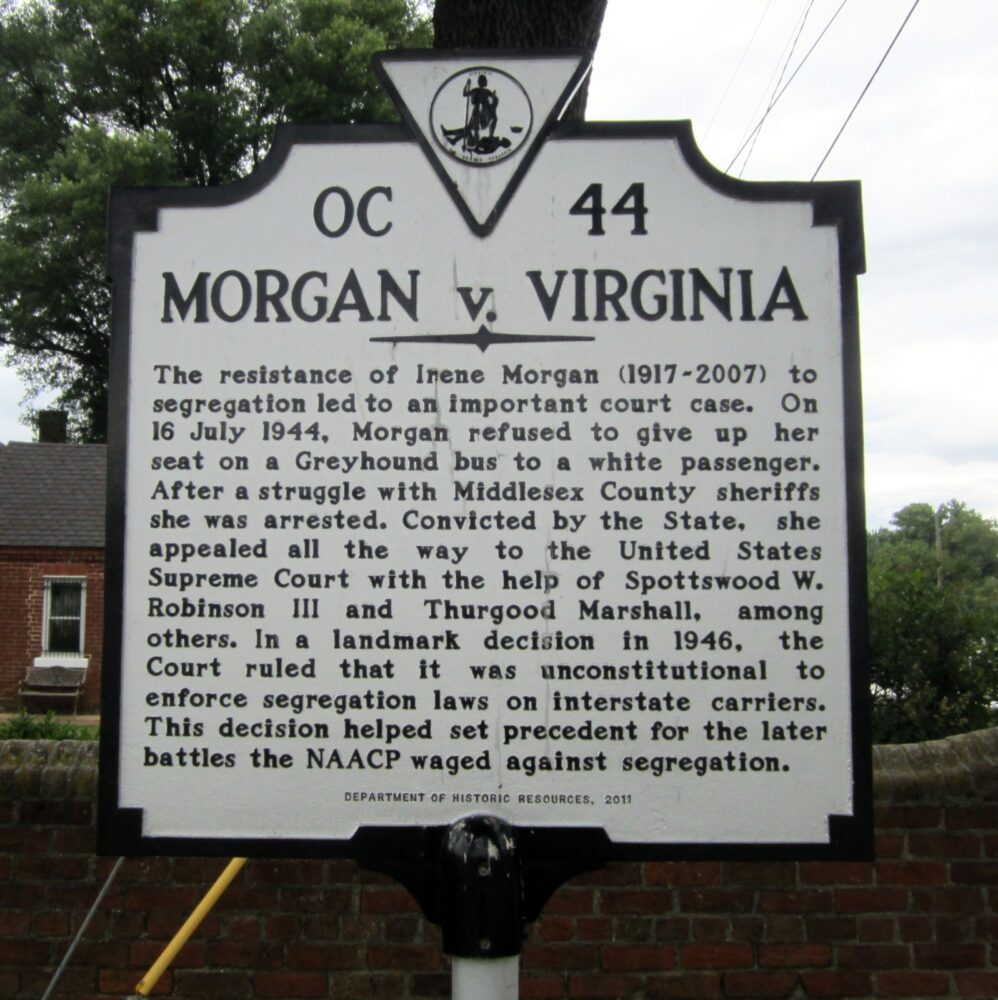
Most are familiar with activist Rosa Parks and her fight against segregation and injustice. Her simple refusal to give up her seat on a Montgomery County bus played a major role in the Civil Rights Movement and has solidified her name in history books. It is less commonly know that a very similar incident actually occurred in Middlesex County.
In 1944, Mrs. Irene Morgan of Baltimore journeyed to Gloucester to visit her mother and on July 16 boarded a Greyhound bus to return home to her family. As the bus neared Saluda, two white passengers boarded the crowded bus. The bus driver demanded that Mrs. Morgan and another African American mother and child move to the rear of the bus. Morgan refused and the driver swiftly drove straight to the jail in Saluda.
In Virginia at this time, buses were required by state law to segregate passengers. What became unclear was weather or not Virginia laws could apply to a bus that crossed state lines. Morgan was charged in Middlesex for her non-compliance.
A historical marker referencing the court case is located in front of the Middlesex County Courthouse at 832 General Puller Highway.
It reads as follows:
The resistance of Irene Morgan (1917-2007) to segregation led to an important court case. On 16 July 1944, Morgan refused to give up her seat on a Greyhound bus to a white passenger. After a struggle with Middlesex County sheriffs she was arrested. Convicted by the State, she appealed all the way to the United States Supreme Court with the help of Spottswood W. Robinson III and Thurgood Marshall, among others. In a landmark decision in 1946, the Court ruled that it was unconstitutional to enforce segregation laws on interstate carriers. This decision helped set precedent for the later battles the NAACP waged against segregation.
On October 18,1944 Morgan had her day in the Middlesex County courtroom where she pleaded guilty to resisting arrest but not guilty on the offense of segregation.
Richmond based lawyer Spottswood W. Robinson III took on her case and the appeals process began. Thurgood Marshall and William H. Hastie also collaborated on behalf of the NAACP. The team built their case around the 14th amendment which guaranteed equal protection and due process. On June 6, 1945 the Virginia Supreme Court of Appeals ruled against Morgan.
Her case was then escalated to the U.S. Supreme Court and her arguments were heard on March 27, 1946. On June 3, the court ruled in favor of Morgan, stating that state law could not mandate interstate passenger travel. Unfortunately the case did not bring about immediate, wide sweeping change as Morgan and her team of advocates would have hoped, but the ruling marked an important early Victory in the Civil Rights Movement.
Information sourced from www.encyclopediavirginia.org





